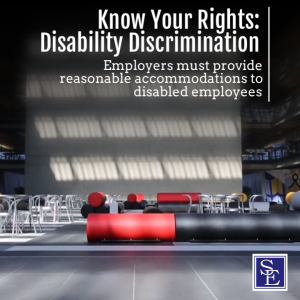The New Jersey Appellate Division ruled that the New Jersey Law Against Discrimination protects New Jersey employees from being fired for failing a drug test in connection with medical marijuana use. For employees who use medical marijuana, this provides some extra protections with respect to their employment. With approximately 45,000 registered patients in the medical marijuana program, and an additional 2,000 members joining every month, this decision has far-reaching implications as it will protect those with disabilities requiring use of medical marijuana.
The Appellate Division suggested that, to the extent the use of medical marijuana is limited to non-working hours, it does not translate that an employee is unable to perform their job duties and responsibilities. The Appellate Division’s decision was based upon a lawsuit filed by 41-year old Justin Wild, a cancer patient, who was fired from his employment at a funeral home as a result of his medical marijuana use during non-working hours.
The New Jersey Law Against Discrimination prohibits employers from discriminating against disabled employees. The New Jersey state discrimination law requires that employees provide reasonable accommodations to disabled employees who need assistance in performing the essential functions of his or her job. When an employee provides sufficient notice to his or her employer that they need assistance as a result of a disability, the employer is obligated to work with the employee in an interactive process to determine whether the requested or other accommodation can provided to the employee. The employer must provide a reasonable accommodation, unless they can show that the accommodation would constitute an undue hardship on their business operations.
The trial court determined that the New Jersey Compassionate Use Medical Marijuana Act put into effect in 2010 does not require employers to make accommodations for medical marijuana use. In reversing, the Appellate Division found that the New Jersey Law Against Discrimination requires employers to provide accommodations to employees with disabilities, like Mr. Wild, whose physician approved the use of medical marijuana. The accommodation sought by Wild was simply to be permitted to continue use of medical marijuana during non-work hours. In reversing the trial court, Judge Clarkson Fisher, Jr. penned, “It would be ironic indeed if the Compassionate Use Act limited the Law Against Discrimination to permit an employer’s termination of a cancer patient’s employment by discriminating without compassion.”
While New Jersey’s Compassionate Use Medical Marijuana Act expressly states that an employer is not required to accommodate the medical use of marijuana in any workplace, the court in Wild held that the Compassionate Use Act does not immunize employers from obligations already imposed elsewhere in the law, such as the New Jersey Law Against Discrimination. Unfortunately, Mr. Wild’s legal battle may not be over as his employer has appealed the Appellate Division’s decision to the Supreme Court.
Based on the Appellate Division’s decision in this matter, employers should not take adverse employment actions against individuals who use medical marijuana pursuant to the Compassionate Use Act solely for testing positive for marijuana. It is critical to determine whether the employee has exhibited signs of marijuana-related impairment while at work. Further, this decision suggests that there may be other circumstances where an employer will be required to provide accommodations for off-duty medical marijuana use. Under the Wild decision, zero tolerance drug policies that include marijuana, without exceptions for medical use, leave employers vulnerable to challenges by employees who find themselves in a situation similar to Mr. Wild.
Many employers are not keeping up with the changes in this developing area of the law. As a result, many employees using marijuana to treat disabilities are suffering unlawful discrimination when they face employment discipline for their off-duty marijuana use. Our New Jersey employee lawyers will continue to monitor the proposed legislation concerning medical marijuana and court cases that interpret the law.
If you believe you have suffered such discrimination, or if you need legal advice in connection with your medical marijuana use and employment or other form of disability discrimination, please call our New Jersey employment lawyers to discuss the specific facts and circumstances concerning your potential legal matter.
 New Jersey Employment Lawyers Blog
New Jersey Employment Lawyers Blog


